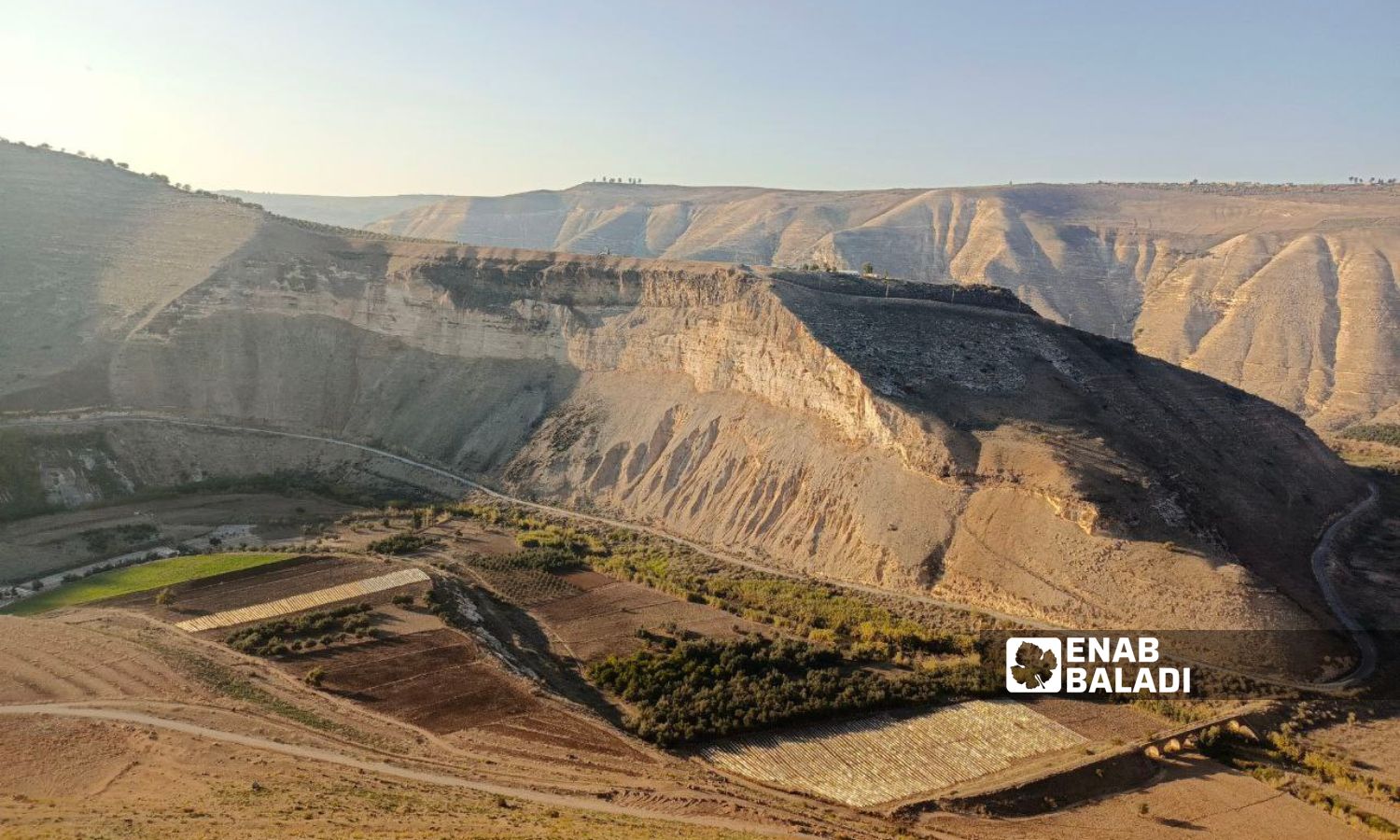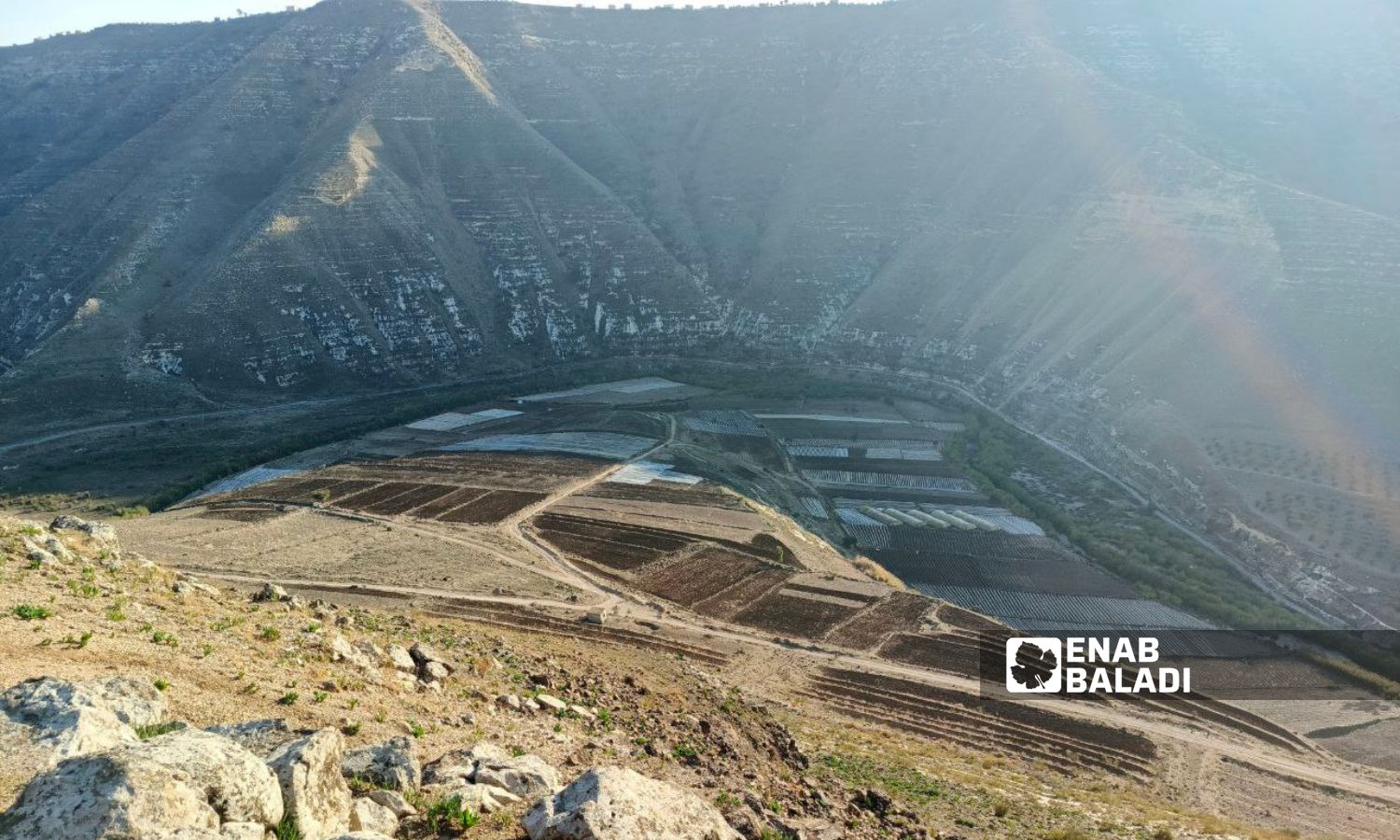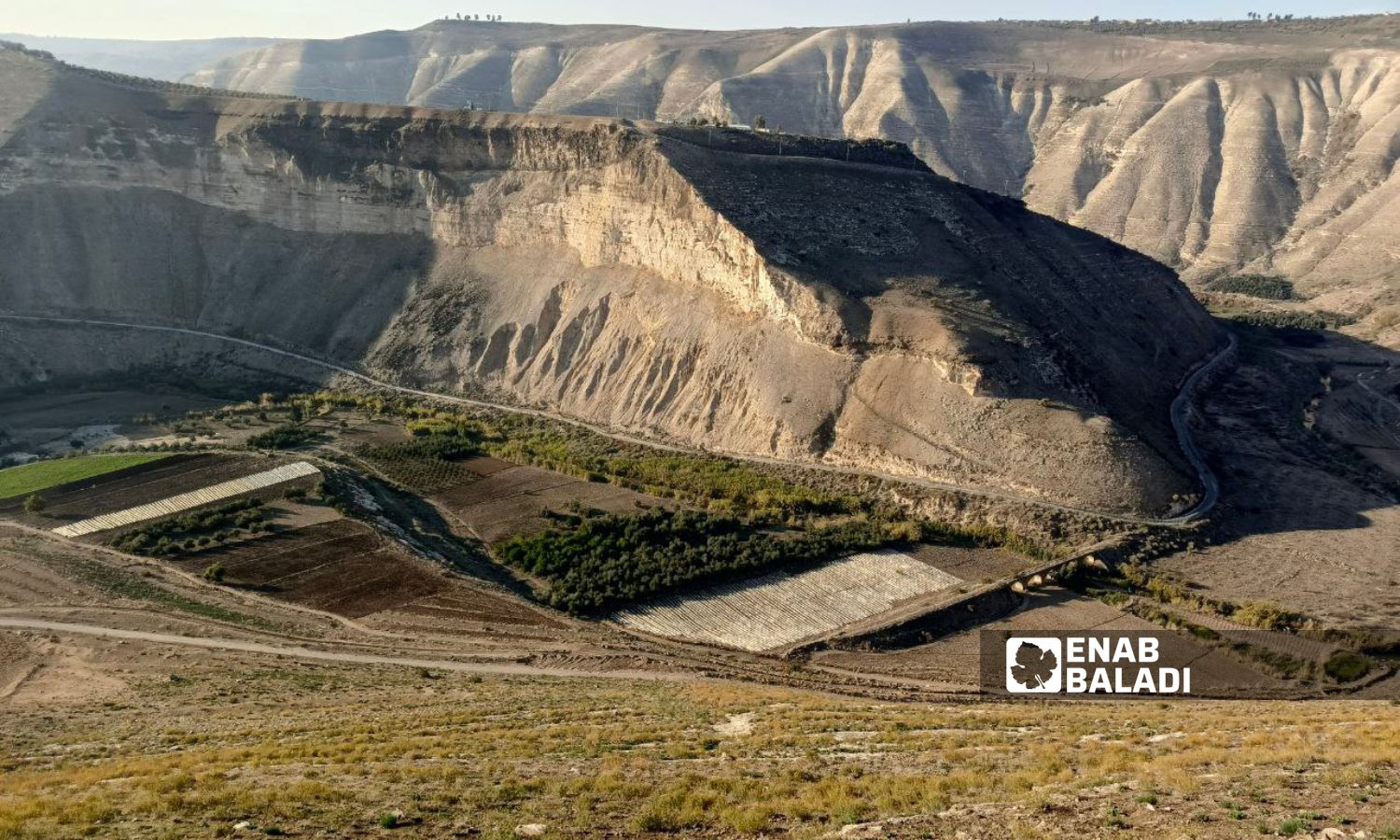



Beekeepers and farmers in Ma’raya Valley in western Daraa have been unable to continue their work since the Israeli forces occupied the Jazeera hill after the fall of the Assad regime on December 8, 2024.
Several beekeepers and farmers attributed their failure to check on their fields to their refusal to pass through the Jazeera and register their names with the Israeli forces, who requested individuals to report to the military point on the Jazeera back and forth.
On December 10, 2024, an Israeli military force advanced and seized the Jazeera, which is a hill west of the town of Ma’raya, overlooking the Ar Raqqad Valley to the north, al-Yarmouk Valley, and the Jordanian borders to the south, as well as overlooking the Syrian borders to the east and the Golan Heights to the west.
The presence of Israeli forces on the Jazeera allows them to oversee most of the land of the Ma’raya Valley, which is cultivated with early-season vegetables and attracts beekeepers in the winter due to its warm location and suitability for beekeeping. The land is also considered pasture for livestock in the region.
Before the fall of the regime, the Syrian army used the Jazeera as a military point for border control.
There are about 2,500 beehives in the Ma’raya Valley, owned by beekeepers from various areas of the Yarmouk Basin, according to beekeepers interviewed by Enab Baladi.
Mawafaq al-Hafari, a resident of the town of Ma’raya, owns 50 beehives in the al-Yarmouk Valley and said he has not checked on his hives for about 30 days.
He mentioned that the presence of the Israeli military point obstructed his access to the hives, especially after they requested farmers to report to the military point for back and forth trips to the valley.
The beekeeper fears for the fate of his hives, as they require regular check-ups for feeding with sugar solution due to the lack of natural pastures currently. The hives also need medications and checks on the frames and wax, among other maintenance tasks.
Al-Hafari estimated his losses at about 75 million Syrian pounds (6,700 US dollars) and relies on beekeeping and honey sales as his main source of income for supporting his family.

Vegetables planted in the al-Yarmouk Valley from the side of the town of Koya in the countryside of Daraa – January 3, 2025 (Enab Baladi/Halim Muhammad)
Another beekeeper, who has 100 hives (requested anonymity), told Enab Baladi that his losses could exceed 150 million Syrian pounds (13,000 US dollars) if he is unable to access his hives.
The beekeeper rejects the presence of the Israeli military point and considers going to it as an acknowledgment of its existence, thus preferring to lose his hives than to engage with the Israeli military occupying the Jazeera.
He added that there is no charter for the promises of these forces, and he fears that they may act militarily or open fire at any moment on farmers or beekeepers.
He mentioned that some notables and beekeepers contacted the UN forces present in the town of Jumla in the western Yarmouk Basin to escort the beekeepers and retrieve their hives from the valley, but the UN forces requested an official letter from the Syrian government to communicate with Israel for this request to be fulfilled.

Al-Yarmouk Valley from the side of the town of Koya in the countryside of Daraa – January 3, 2025 (Enab Baladi/Halim Muhammad)
Farmers from the border villages of Koya, Ma’raya, and Bayt Ara rely on early-season agriculture in al-Yarmouk Valley, which is their only source of livelihood.
Mohammad al-Ahmad could not plant zucchini this season on his land (50 dunams) and stated that he bought a modern irrigation network, seeds, and fertilizers, but the presence of Israeli forces prevented him from farming.
He told Enab Baladi that one dunam of zucchini produced a yield of around 7 million Syrian pounds (636 US dollars) in the past season, but this season he will gain no return.
He mentioned that the crop requires daily follow-up and needs guarding at night against wild boars, which is difficult given the presence of the Israeli point.
Farmers benefit from early-season vegetables as they ripen early and are sold at high prices, with tomatoes, zucchini, green beans, yellow watermelon, and peas being among the most cultivated varieties.
Farmers from Koya, Bayt Ara, and al-Qusayr were able to cultivate because the Israeli point does not overlook them.
Since the Israeli army occupied the Jazeera area, its forces have stormed the towns of Ma’raya, Jumla, Bayt Ara, and Abidin, moving to the outskirts of Ma’raya and Jumla and destroying an BMB vehicle and some weapons around the town.
Israel demanded that notables in these towns report to the military point on the Jazeera area to outline some conditions, including weapons control by surrendering them to an official entity, not harboring strangers, and reporting to the military point on the Jazeera by the farmers.
if you think the article contain wrong information or you have additional details Send Correction